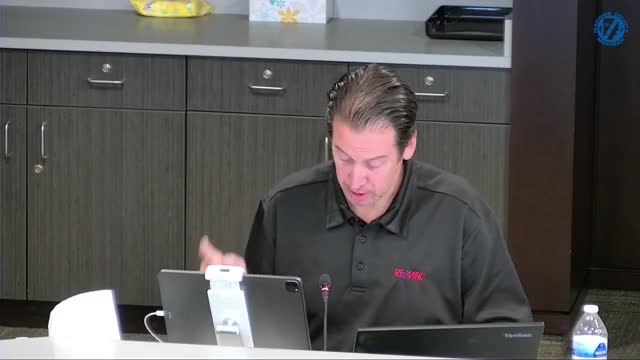Community Action Agency Faces Funding Cuts Amid Rising Demand
October 21, 2024 | Macomb County, Michigan
This article was created by AI summarizing key points discussed. AI makes mistakes, so for full details and context, please refer to the video of the full meeting. Please report any errors so we can fix them. Report an error »

During a recent government meeting, officials discussed significant changes in funding and services related to public health and community action programs. The health department reported a notable decrease in grant funding, primarily due to the expiration of COVID-related grants, which has led to a reduction in intergovernmental revenue and a drop in expenditures from $3.5 million to $1.6 million. The department is transferring an additional $500,000 from the general fund to support ongoing initiatives, including a sewage surveillance project managed by a third-party vendor.
Commissioner Crafty raised questions about specific grants, including a $250,000 allocation for public health workforce and infrastructure, which is earmarked for a mobile vaccination vehicle. The discussion highlighted the fluctuating nature of grant funding, with officials noting that while initial allocations may decrease, there is potential for amendments throughout the year based on performance and additional state funding.
Macomb Community Action also presented its annual report, emphasizing its efforts to assist vulnerable populations. The agency served over 1,600 households with water affordability issues and provided support to approximately 120 veteran families. Despite securing $1 million in state funding for water utility assistance, the agency expressed concerns about future federal cuts, predicting a potential 40% reduction in the TFAP program over the next few years.
The agency's food bank operations have distributed around 2.5 million pounds of food annually, serving over 120,000 households through a network of 60 to 65 local pantries. However, rising food costs and reduced SNAP benefits are straining resources, prompting calls for increased funding. The agency's budget request for food assistance was again cut from $1 million to $500,000, raising alarms about the sustainability of food support services amid growing demand.
Overall, the meeting underscored the challenges faced by public health and community service programs as they navigate funding reductions while striving to meet the needs of their communities.
Commissioner Crafty raised questions about specific grants, including a $250,000 allocation for public health workforce and infrastructure, which is earmarked for a mobile vaccination vehicle. The discussion highlighted the fluctuating nature of grant funding, with officials noting that while initial allocations may decrease, there is potential for amendments throughout the year based on performance and additional state funding.
Macomb Community Action also presented its annual report, emphasizing its efforts to assist vulnerable populations. The agency served over 1,600 households with water affordability issues and provided support to approximately 120 veteran families. Despite securing $1 million in state funding for water utility assistance, the agency expressed concerns about future federal cuts, predicting a potential 40% reduction in the TFAP program over the next few years.
The agency's food bank operations have distributed around 2.5 million pounds of food annually, serving over 120,000 households through a network of 60 to 65 local pantries. However, rising food costs and reduced SNAP benefits are straining resources, prompting calls for increased funding. The agency's budget request for food assistance was again cut from $1 million to $500,000, raising alarms about the sustainability of food support services amid growing demand.
Overall, the meeting underscored the challenges faced by public health and community service programs as they navigate funding reductions while striving to meet the needs of their communities.
View full meeting
This article is based on a recent meeting—watch the full video and explore the complete transcript for deeper insights into the discussion.
View full meeting
